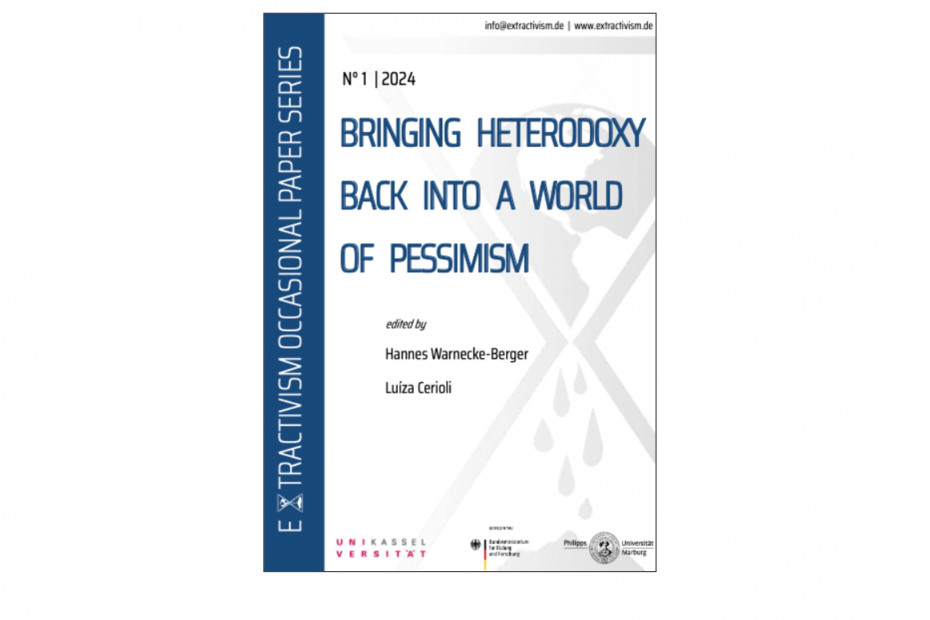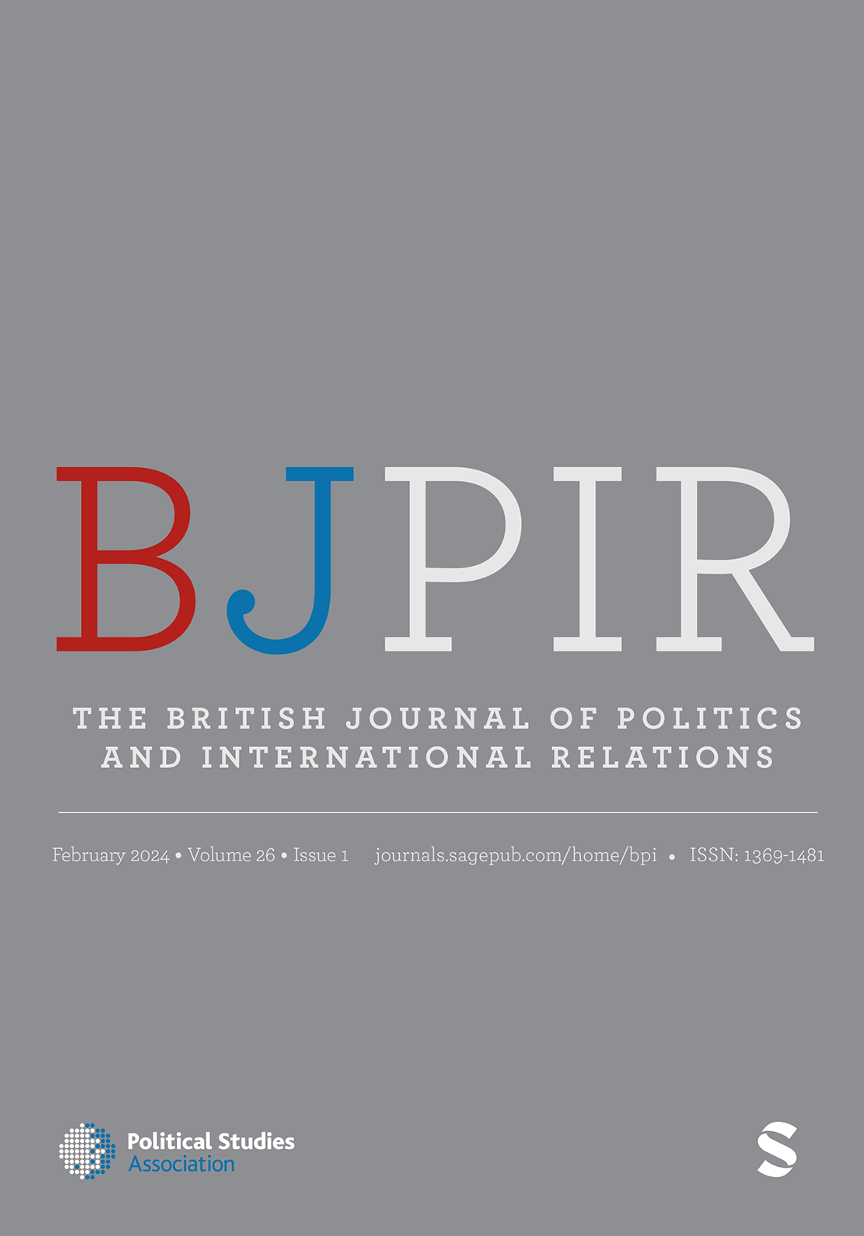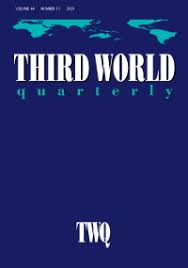Extractivism Occasional Paper 01/2024: Bringing Heterodoxy Back into a World of Pessimism
Abstract
The world is one of crises. In fact, it seems that a persistent characteristic of our planetary condition is the recurrence of crises at a global scale, such as the 2008 global financial crash, the COVID-19 pandemic, the climate emergency, the war in Ukraine and rising tensions in the Middle East. These crises have shown, over and over again, how the world produces and reproduces multiple economic, societal and political interlinkages. However, the prevailing mainstream social sciences’ doctrines, be institutionalism, constructivism, neoclassic or neoliberal economics, have been ill-fated in explaining these patterns. Many of their optimistic predictions concerning growth, development, prosperity, and peace did not materialize. Actually, the pendulum is swinging in the opposite direction with the increase of pessimism, isolationism, populism, and nationalism. Moreover, after a years-long requiem of the state and debates about its end, the state revitalized itself quickly – bringing old issues about its protagonism in socio-economic development to the table with new challenges such as climate change, race, gender, decentralization and globalism. Thus, while mainstream Western thinking sought a neoliberal utopia, the complex reality of class struggles, conflict for resources, predatory consumption of nature, and inequalities on a global scale push us to reassess the role of the state in development.
Dr Hannes Warnecke-Berger and Dr Luíza Cerioli are the editors of the first volume of the Extractivism Occasional Papers entitled Bringing Heterodoxy Back into a World of Pessimism. They bring together scholars from different scholarly backgrounds and academic careers to make a case for revitalizing some aspects of heterodox thinking and overcoming mainstream social sciences’ pitfalls and setbacks in understanding the world’s current changes and continuities. This volume’s six contributions aim at revisiting heterodox arguments in discussing current global crises, development trajectories and the enduring legacy of structuralist reasoning. They show that the recurring economic and political crises indicate, simultaneously, an intellectual, geopolitical and material turning point that needs to be handled through interdisciplinary, intersectionality and multifactoral analysis. Taken together, they stress the importance of revisiting and adapting heterodox worldviews to produce knowledge that not only challenges hegemonic ways of thinking and norms but also offers new perspectives and alternatives on issues such as inequality, income distribution, imperialism, class struggles and climate justice.
Table of Contents:
- Introduction: Bringing Heterodoxy Back into a World of Pessimism, by Hannes Warnecke-Berger (University of Kassel) and Luíza Cerioli (University of Kassel)
- Re-Considering the Structural in Contemporary Analysis of the Global Political Economy, by Ingrid Harvold Kvangraven (King’s College)
- Rent as a Challenge, by Hartmut Elsenhans (University of Leipzig)
- Extractivism, Anti-Imperialism, and the Second Argument Legitimizing Import Tariffs, by Luiz Carlos Bresser-Pereira (Getúlio Vargas Foundation)
- Latin American Structuralism’s Enduring Legacy, by Fernando Rugitsky (University of West of England)
- Beyond Dualist Worldviews: The Theory of UCD in Times of Climate Crisis, by Johanna Siebert



